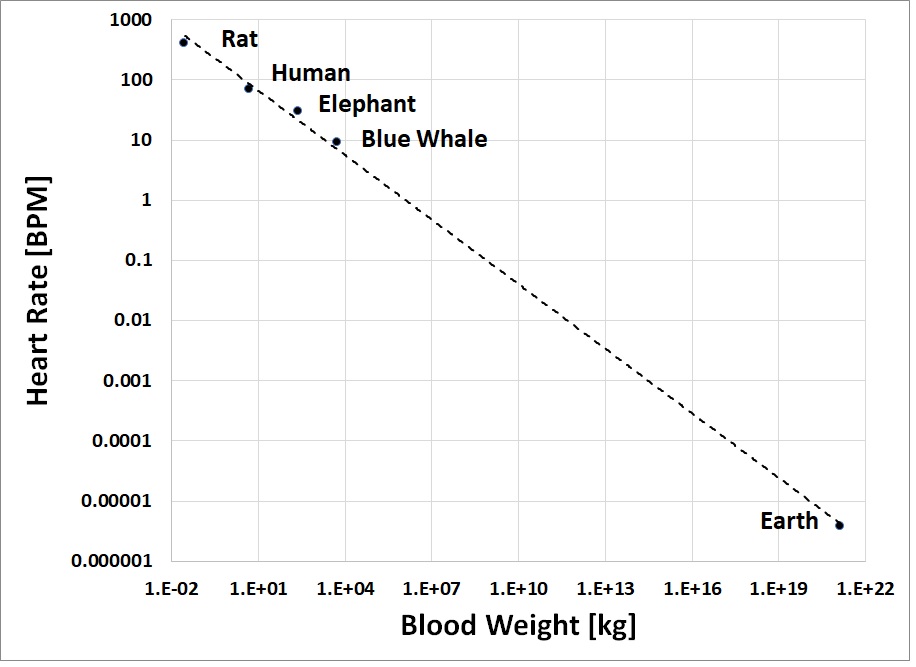SkS Analogy 26 - Earth's Beating Hearts
Posted on 8 November 2023 by Evan
Earth has two beating hearts, of sorts, beating not at a rate per minute, but rather beating at a steady, consistent, life-giving 2 beats per year. Where are these terrestrial hearts located? The polar regions (read here and here). Without Earth’s hearts life on this planet would be very different. Earth’s hearts pump life-giving oxygen, nutrients, and energy to the remotest parts of our world.
Earth’s hearts pump when each year the floating sea ice expands and contracts by millions of square kilometers. Ice sheets expand by salt water freezing during the cold months of the year. When this happens, salt is squeezed from the freezing water, creating a dense brine, which falls to the ocean floor. As it falls it displaces water, pushing it forward to help drive the ocean circulation. The cycle is repeated when the ice melts later in the year and then refreezes again, repeating the cycle.
A curious thought. Is there any relationship to the beating rate of Earth’s hearts and to the rate at which our own hearts beat? An absurd thought? Maybe not.
One of the smallest creatures on Earth is a rat, weighing in at less than 1 kg. One of the largest is the blue whale, weighing in at more than 100 tons! Typically, the weight of blood for such creatures is anywhere from 5 to 10% of the body weight. The weight of the Earth is about 6x1021 tons. Considering the weight of the oceans as Earth’s blood, the weight of Earth’s blood is only about 0.02% the weight of the Earth. Using the mass of blood rather than body weight, a plot of the heart rate vs blood weight suggests that a consistent relationship exists between heart rate and the weight of blood circulated, all the way from a creature as small as a rat to a planet as large as the Earth.
Why is ice important? Not just because it controls sea level, but because it keeps our planet alive.
































 Arguments
Arguments






























This is wonderful. Thanks for connecting the dots in ways I have never considered.
Kudos bringing the planetary mass into view. Now let's look at the human biomass. In terms of planetary mass it is 5 x 10^-14 of the planetary mass. Such numbers trigger a what's going on here headsmack. Are we really proposing that a biomass can develop the sun amplifying machinery to influence the temperature of a mass 2 x 10^13 larger?
groovimus @2:
Congratulations. Your second post at SkS, and you've provided two incredibly bad arguments in a single paragraph.
First, you're making an "argument from incredulity" I can't believe that people are still making "I can't believe" types of arguments these days. [See how that works?]
Second, you're making an "it's only a trace" argument. Usually people that are making an "it's only a trace" argument are doing it with respect to CO2 concentrations. At least we should give you some points for originality - for making it about the mass of humans vs. the mass of the earth - but you're still only scoring 2-3 points out of 100. If you were really creative, you'd go onto the CO2 is a trace gas thread and tell us how the mass of CO2 is sooo small in comparison to the mass of the earth, instead of the usual comparison with the mass of the atmosphere alone. It would still be a completely bogus argument, but boy oh boy could you really throw around some huge ratios!
Also, you never did go back to follow up your first SkS comment, where you completely failed to provide any argument why anyone should listen to John F Clauser (the subject of the post you were supposed to be commenting on). All you had there was ad hominem rants and insults.
So the beating heart is the annual solar cycle, caused by the Earth's tilt as it orbits the sun? Crossing the equator twice per year.
Paul@4, that is an interesting observation for our current era: a relationship between the sun and the ice. But if the polar ice caps were to disappear, the sun crossing the equator twice per year would no longer have the same effect.
The nodal crossing is also responsible for ENSO